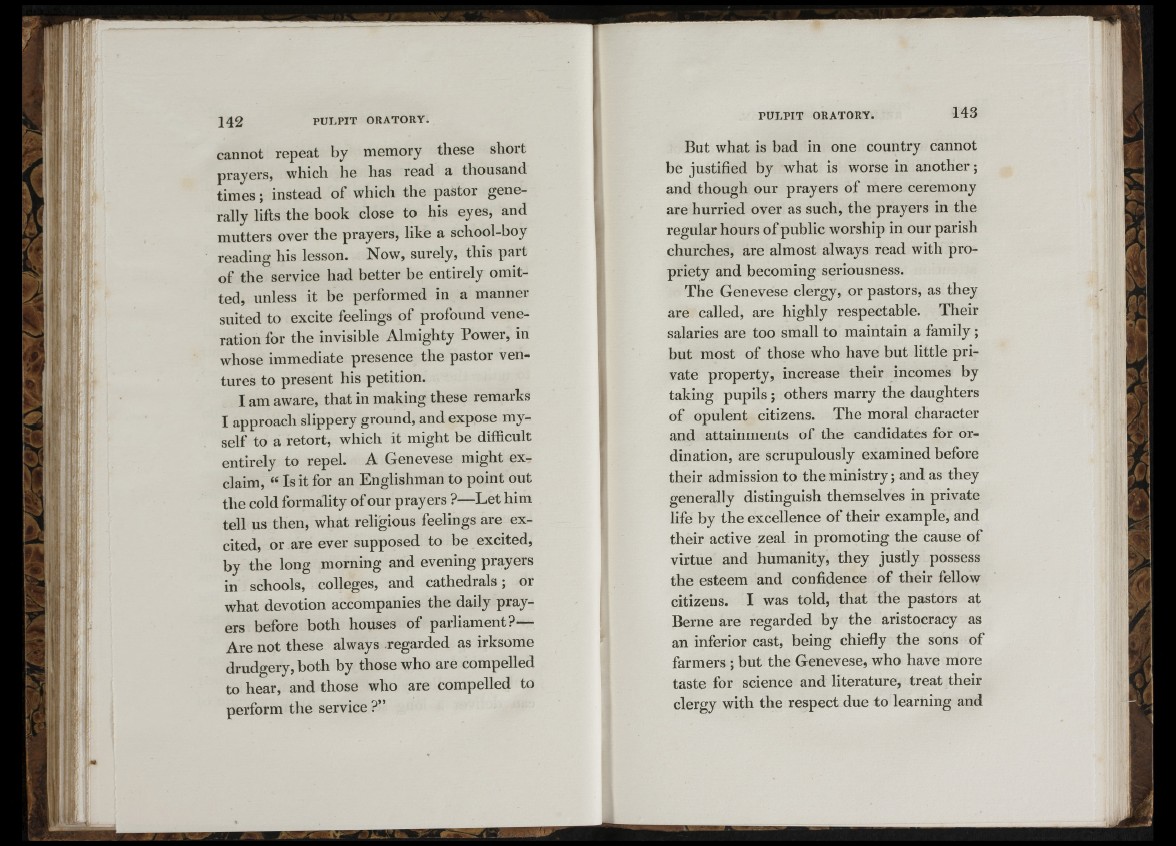
142 PULPIT ORATORY.
cannot repeat by memory these short
prayers, which he has read a thousand
tim e s ; instead of which the pastor generally
lifts the book close to his eyes, and
mutters over the prayers, like a school-boy
reading his lesson. Now, surely, this part
of the service had better be entirely omitted,
unless it be performed in a manner
suited to excite feelings of profound veneration
for the invisible Almighty Power, in
whose immediate presence the pastor ventures
to present his petition.
I am aware, that in making these remarks
I approach slippery ground, and expose myself
to a retort, which it might be difficult
entirely to repel. A Genevese might exclaim,
“ Is it for an Englishman to point out
the cold formality o f our prayers ?—L e t him
tell us then, what religious feelings are excited,
or are ever supposed to be excited,
by the long morning and evening prayers
in schools, colleges, and cathedrals; or
what devotion accompanies the daily prayers
before both houses of parliament?—
Are not these always regarded as irksome
drudgery, both by those who are compelled
to hear, and those who are compelled to
perform th e service ?”
PULPIT ORATORY. 143
But what is bad in one country cannot
be justified by what is worse in another ;
and though our prayers o f mere ceremony
are hurried over as such, the prayers in the
regular hours of public worship in our parish
churches, are almost always read with propriety
and becoming seriousness.
The Genevese clergy, or pastors, as they
are called, are highly respectable. Their
salaries are too small to maintain a family ;
but most of those who have but little private
property, increase their incomes by
taking pupils ; others marry the daughters
of opulent citizens. The moral character
and attainments of the candidates for ordination,
are scrupulously examined before
their admission to the m inistry; and as they
generally distinguish themselves in private
life by the excellence of their example, and
their active zeal in promoting the cause of
virtue and humanity, they justly possess
the esteem and confidence of their fellow
citizens. I was told, that the pastors at
Berne are regarded by the aristocracy as
an inferior cast, being chiefly the sons of
farmers ; but the Genevese, who have more
taste for science and literature, treat their
clergy with the respect due to learning and